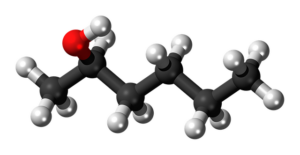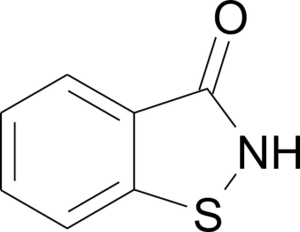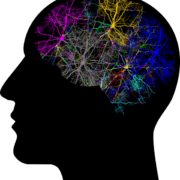The Top 5 Smart Drugs for Writers
Have you ever sat down to work on a job only to find yourself one hour later still pondering over where to begin?
Do you have difficulty in understanding why some days you can churn out the work, where 5 hours feels more like 5 minutes, while on other days you simply can’t pen a coherent word?
We’ve all had that feeling. No one escapes it. Not even the best of us.
There is always a reason for these seemingly wild swings in our ability to produce quality work. There can be a myriad of causes, but essentially it boils down to an imbalance in brain chemistry.
Things like a healthy diet, proper sleep, a meditation practice and a low-stress lifestyle are all essential to good cognitive function. There is, however, a lesser-known way to increase brain function and ensure you can call upon that creativity, mental energy, and laser-like focus when you really need it. It is through the use of nootropics, also known as smart drugs.
Many techniques exist and in this article, we run through some common and safe nootropics that you can use to enhance not only your writing but also countless other aspects of your life such as overall mood and your relationships.
Table of Contents
The top 5 smart drugs for writers
1. Caffeine
Alertness, wakefulness
 Most common in coffee where 2.25 billion cups are enjoyed every day worldwide, caffeine is nature’s original smart drug. And contrary to popular belief, it’s extremely healthy if consumed from the right source and in the right dose.
Most common in coffee where 2.25 billion cups are enjoyed every day worldwide, caffeine is nature’s original smart drug. And contrary to popular belief, it’s extremely healthy if consumed from the right source and in the right dose.
The reality is that most people simply use caffeine as a drug to get to work. On top of that, they drink poor quality coffee often laced with sugar. In short, it’s a recipe for disaster, a quick boost followed by that inevitable crash. In many cases, coffee ends up becoming a crutch which ends up disrupting sleep cycles and adrenal health. There is, however, a lot more to this substance than we are conditioned to believe.
The caffeine molecule interacts with adenosine receptors in the brain. Adenosine is an inhibitory neurotransmitter that promotes relaxation and sleep as the day wears on. When caffeine interacts with adenosine receptors, adenosine can no longer have that inhibitory effect and thus wakefulness and alertness are promoted. Dopamine and adrenaline production is increased, thus providing that happy and motivated feeling.
There are countless ways to consume coffee. However, it is best taken black without milk. The casein protein in the milk binds to the polyphenols in the coffee making them unavailable and thus robbing your brain of a potent nutrient.
Choose high-quality coffee, preferably 100% Arabica. Bear in mind that coffee is one of the crops most heavily sprayed with pesticides across the world. An organic source is preferred, and if possible choose one which has been carefully processed to contain a minimal amount of mycotoxins which are alarmingly abundant in cheap coffee. Avoid instant coffee like the plague!
In recent times the craze of bulletproof coffee has taken off. Basically, it involves getting yourself some high-quality beans, brewing a coffee and blending it with grass-fed butter and MCT Oil.
Bulletproof Coffee a high-performance drink that has a massive impact on your energy and cognitive function. It has helped everyone from driven CEOs to professional athletes to busy parents increase their energy so they can do more of what fulfills them
– Dave Asprey – CEO Bulletproof.
The idea was conceived by a man named Dave Asprey who discovered it on a trip to Tibet some years ago. and further details can be found here. Coupled with intermittent fasting, it’s well worth a try for the ultimate in mental clarity and a productive writing session.
2. L-Theanine
Relaxation, increased creativity, lowered stress
L-theanine is an amino acid commonly found in green tea. It has recently become a crucial part of any biohacker’s stack. It first shot to fame when Buddhist monks claimed that drinking green tea helped them maintain that “mindful alertness” during meditation sessions.
Theanine promotes relaxation by binding to glutamate receptors in the brain. Glutamate is an excitatory neurotransmitter and blocking it results in a relaxed feel where anxiety levels are lowered.
So, just how does this help your writing? Several scientific studies have been carried out showing how theanine can promote alpha brain waves. These brain waves allow for increased creativity and reduced stress, both useful traits for a copywriter!
Typically theanine is consumed with caffeine in a 2:1 ratio. So a standard cup of coffee with 100mg of caffeine could be stacked with 200mg of theanine. Doses can be moved up or down until the sweet spot is found. Many people take up to 700-800mg. Everyone is different, so experiment.
L-theanine is a safe supplement and widely available. For those who claim that coffee consumption alone makes them jittery, then theanine may well be the ticket you need to obtain the benefits without having your brain revving uncontrollably in 6th gear.
If you are a creative type L-Theanine is worth your attention. Bloggers, authors and especially adcopy writers should know that…
– Jonathan Roseland – Biohacker and self experimenter
Jonathan Roseland is well known in the biohacking and nootropics world and is a proponent of using L-theanine for writing sessions. Check out his further writings on the advantages of theanine for a more complete picture of this wonderful supplement.
3. L-Tyrosine
Motivation, laser-like focus
 Providing a natural boost in motivation and calmness, you’ll wonder why something as simple as L-Tyrosine has never crossed your radar before.
Providing a natural boost in motivation and calmness, you’ll wonder why something as simple as L-Tyrosine has never crossed your radar before.
An important precursor, L-Tyrosine provides your body with the main building blocks for neurotransmitters such as dopamine, epinephrine, and norepinephrine. These 3 neurotransmitters are burned off at a rapid rate when we become stressed and anxious. Dopamine, in particular, is of great importance to writers. It’s what gives you that motivated feel to continue with a given task with increased focus.
Typical doses of Tyrosine start at 500mg and should be increased in 500mg increments until the sweet spot is found. Some people may require up to 2g or more.
N-Acetyl-Tyrosine is another form of Tyrosine with a slight alteration in the chemical structure which allows it to cross the blood-brain barrier more freely.
Tyrosine has numerous beneficial effects on overall health. For further info, feel free to check out this interesting article on examine.com where they speak of the scientific studies related to this wonder amino acid.
4. Piracetam
Increased verbal and written fluency, increased working memory
 The racetams are a family of synthetic nootropics. In total there are eight. However, one, in particular, has been around for 50 years and is extremely well studied, namely piracetam. This nootropic induces a focused mindset, but more interestingly for writers, it aids in fluency in both written and spoken word.
The racetams are a family of synthetic nootropics. In total there are eight. However, one, in particular, has been around for 50 years and is extremely well studied, namely piracetam. This nootropic induces a focused mindset, but more interestingly for writers, it aids in fluency in both written and spoken word.
Very often as creatives we have an abstract image, idea or some sensual entity in our minds which at times we fail to verbalise adequately. When you are on piracetam, you will often notice a subtle but distinct change in your ability to verbalise the collection of connected ideas in your mind in both written and verbal form.
Piracetam works on a neurotransmitter known as acetylcholine. Acetylcholine plays an important role in memory formation, attention and logical reasoning. The exact workings of this nootropic are not entirely understood by science. However, it has been studied for 30-40 years in multiple human studies. Evidence suggests that not only is it beneficial, but it is also neuroprotective and helps preserve cognitive function as we age.
Piracetam is generally best stacked with a choline source to ensure sufficient acetylcholine in the brain. A typical piracetam dose may be between 2g – 4g per day. Piracetam is water-soluble and can generally be expected to work for 4 hours. Choline supplementation should start at around 170mg of Alpha GPC or CDP Choline and increased until the optimal dose is found.
The smart drugs smart podcast is one of the biggest podcasts on nootropics on the internet. They dedicated a full episode to the racetams for anyone requiring further info on their mechanisms of action or curious as to what some of the more potent racetams might hold in store for you.
5. Nicotine
Creativity, motivation, increased focus
Now this one is controversial. Nicotine is commonly associated with smoking cigarettes which of course we do not recommend. The latest science, however, suggests that nicotine, when not consumed in tobacco form, may actually be quite safe and hold some potent benefits. Stephen King who quit smoking some years ago, afterwards claimed that he really noticed a decrease in his creativity after that point. It’s an interesting observation which science has now substantiated.
Nicotine works on the brain by upregulating nicotinic acetylcholine receptors (nAChR). This increases the signalling of neurotransmitters and boosts alertness, creativity, and memory. Increased dopamine levels ensure that you have that motivating feel. A potent combination of benefits for any writer.
Nicotine is highly addictive so must be used sparingly and perhaps only brought out when there is a real need for a cognitive boost. Smokers won’t get any benefits from taking it, but for those who don’t smoke and have not built up a tolerance, the effects are a potent promotion of creativity and focus.
There are several ways to take nicotine. The two easiest ways are to use a patch or a lozenge designed for smoking cessation. Look for the smallest concentrations you can find. After 15-20 minutes you should begin to feel a light buzz, where your brain begins to light up with activity.
Based on my experience with it, and on history, I predict that nicotine (not smoking) will become much more popular for performance and cognitive enhancement
–Dave Asprey – CEO Bulletproof
Dave Asprey from bulletproof has spoken widely about nicotine. In a recent article, he speaks of how nicotine may well become the next big smart drug.
Be careful with this one! Use it sparingly! If abused, it can become a problem, but it may well be useful to have on the side for those dire situations when you are up against it.
A few things to bear in mind
A quick note to end on. For those who are sceptical, here are a few things to bear in mind. Nootropics aren’t mainstream (yet). Many are sceptical of those that use nootropics. It somehow doesn’t seem like a sensible thing to do all that often.
Most people who consume nootropics align themselves with a group of individuals known as biohackers. These people are in general very meticulous regarding their diet and lifestyle. Generally, they are high achievers and tend to use nootropics to enhance their already excellent brain function.
Beware of cognitive biases before rejecting the possible benefits of nootropics. Many of the heavy hitters not mentioned here can provoke unwanted side effects. However many studies suggest that responsible supplementation on top of an already healthy lifestyle can really propel you to the next level in a very safe and sustainable manner.
Eating a subpar diet and living out a lifestyle which is high in stress will do untold damage to your brain function. Bear in mind that many of the practices which are culturally acceptable, that of having a sugary coffee each morning with some toast smothered in margarine, may seem to many like a normal way to nourish ourselves. Yet the excessive consumption of refined carbohydrates and oxidised fats are hugely damaging to the brain. This is often ignored by mainstream media.
Nootropics are useful not only to writers but are also commonly used by people in many different fields. Those who may benefit from them include students, who require a cognitive boost for long hours spent studying and pre-exam cramming. Professionals working in large companies with a mounting list of responsibilities commonly use nootropics to obtain optimal brain performance. The list goes on, and there is no end to people whom they can benefit.
As always, do your own research before making any decisions on this form of supplementation. But please do let us know if you found to find that any of the nootropics mentioned here have helped you out.
Further reading:
If you are interested in the topic and would like to read further, please check out the following, which we found extremely informative on the subject of nootropics.
About the author: Francis Cassidy

Coffee lover, writer, vagabond, self-experimenter and recovering Catholic. Francis has travelled around for much of his adult life and made a living working online for much of that. When not working he enjoys dreaming of how cryptocurrency and blockchain tech will transform our collective future.
Catch up with him on thestrayphotographer.com



